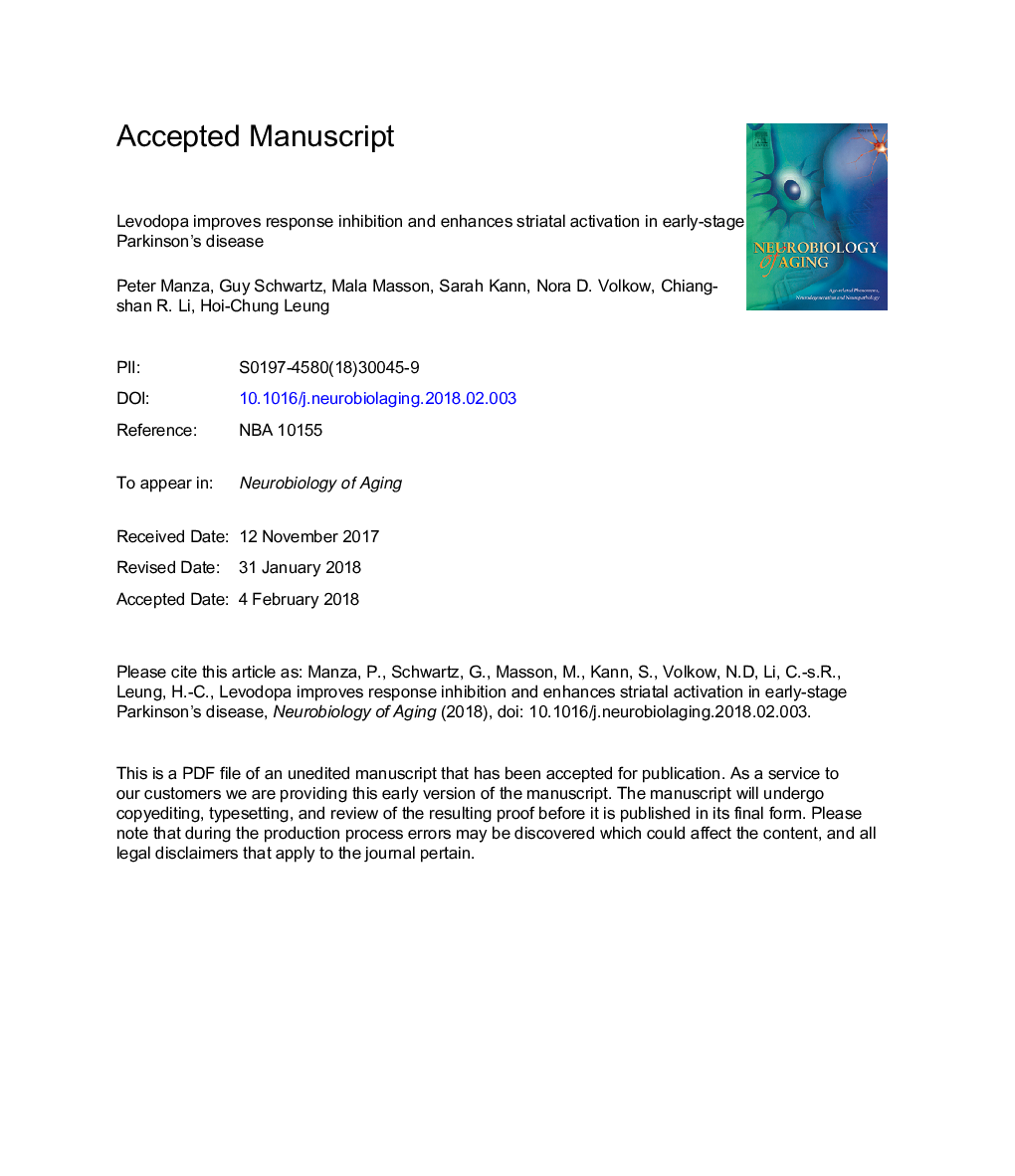| کد مقاله | کد نشریه | سال انتشار | مقاله انگلیسی | نسخه تمام متن |
|---|---|---|---|---|
| 6802931 | 1433518 | 2018 | 39 صفحه PDF | دانلود رایگان |
عنوان انگلیسی مقاله ISI
Levodopa improves response inhibition and enhances striatal activation in early-stage Parkinson's disease
ترجمه فارسی عنوان
لوودوپا مهار پاسخ را بهبود می بخشد و فعال شدن استریاییت را در بیماری پارکینسون پیشرفت می کند
دانلود مقاله + سفارش ترجمه
دانلود مقاله ISI انگلیسی
رایگان برای ایرانیان
کلمات کلیدی
موضوعات مرتبط
علوم زیستی و بیوفناوری
بیوشیمی، ژنتیک و زیست شناسی مولکولی
سالمندی
چکیده انگلیسی
Dopaminergic medications improve the motor symptoms of Parkinson's disease (PD), but their effect on response inhibition, a critical executive function, remains unclear. Previous studies primarily enrolled patients in more advanced stages of PD, when dopaminergic medication loses efficacy, and patients were typically on multiple medications. Here, we recruited 21 patients in early-stage PD on levodopa monotherapy and 37 age-matched controls to perform the stop-signal task during functional magnetic resonance imaging. In contrast to previous studies reporting null effects in more advanced PD, levodopa significantly improved response inhibition performance in our sample. No significant group differences were found in brain activations to pure motor inhibition or error processing (stop success vs. error trials). However, relative to controls, the PD group showed weaker striatal activations to salient events (infrequent vs. frequent events: stop vs. go trials) and fronto-striatal task-residual functional connectivity; both were restored with levodopa. Thus, levodopa appears to improve an important executive function in early-stage PD via enhanced salient signal processing, shedding new light on the role of dopaminergic signaling in response inhibition.
ناشر
Database: Elsevier - ScienceDirect (ساینس دایرکت)
Journal: Neurobiology of Aging - Volume 66, June 2018, Pages 12-22
Journal: Neurobiology of Aging - Volume 66, June 2018, Pages 12-22
نویسندگان
Peter Manza, Guy Schwartz, Mala Masson, Sarah Kann, Nora D. Volkow, Chiang-shan R. Li, Hoi-Chung Leung,
